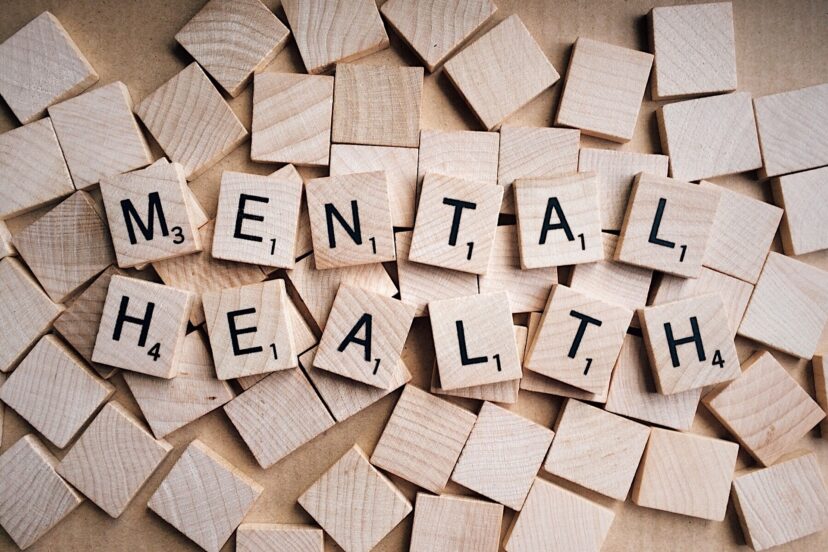Are Video Games Good For Mental Health? Discover 8 Pros and Cons
Are Video Games Good For Mental Health: Introduction
In today’s digital age, video games have become a popular form of entertainment for people of all ages. However, the question remains: are video games good for mental health? Some argue that video games can have negative effects, such as addiction and increased aggression. On the other hand, many experts suggest that gaming can actually be beneficial for mental health, promoting problem-solving skills, social interaction, and relaxation. So, let’s take a closer look at the impact of video games on our mental well-being and explore the potential benefits they may offer.

Are Video Games Good For Mental Health: The impact of video games on mental health
Video games have become a popular form of entertainment for people of all ages, and their impact on mental health has been a topic of interest and debate. While some people argue that video games have negative effects on mental health, others believe that they can have positive effects. This article aims to explore both sides of the argument and provide a comprehensive understanding of the relationship between video games and mental health.
Positive effects of video games on mental health
Improvement in cognitive functions
One of the positive effects of video games on mental health is the improvement in cognitive functions. Many video games require players to think quickly and make decisions within a short period of time. This can enhance cognitive abilities such as attention, memory, and processing speed. For example, action-based games often require players to multitask and react to various stimuli, which can improve their ability to focus and process information more efficiently in real-life situations.
Enhanced problem-solving and decision-making skills
Video games often present players with complex challenges and puzzles that require problem-solving and critical-thinking skills. Players need to analyze the situation, consider various strategies, and make decisions that will lead to the desired outcome. This constant exercise of problem-solving and decision-making can improve these skills, which can be applied not only to video games but also to real-life situations such as work, education, and personal relationships.
Reduction in stress and anxiety levels
Engaging in video games can provide a temporary escape from the stress and challenges of everyday life. Playing video games allows individuals to immerse themselves in a different world and focus on the game’s objectives, thus diverting their attention from their worries and anxieties. This can result in a reduction in stress levels and provide a much-needed break from the pressures of the real world. Additionally, video games that incorporate relaxation techniques such as virtual nature environments or soothing music can further contribute to stress reduction.
Potential for social interaction and connections
Contrary to the perception that video games are isolating, many games now offer online multiplayer modes that encourage social interaction and cooperation. Players can connect with friends or strangers from around the world, collaborate on missions, and engage in friendly competition. This social aspect of gaming can help individuals build relationships, develop teamwork skills, and create a sense of belonging. For some individuals who may struggle with social interactions in real life, video games can serve as a platform for socializing and making connections.
Negative effects of video games on mental health
Potential for addiction and excessive gaming
One of the most concerning negative effects of video games on mental health is the potential for addiction and excessive gaming. Some individuals may find it challenging to control their gaming habits, resulting in a compulsive need to play for extended periods of time. This excessive gaming can lead to neglect of other activities and responsibilities, negatively impacting mental health. It can also contribute to social isolation, sleep disturbances, and physical health issues.
Negative impact on sleep and physical health
Engaging in video games for extended periods, particularly late into the night, can disrupt sleep patterns and lead to inadequate sleep. The stimulating nature of video games, coupled with the blue light emitted by screens, can interfere with the body’s natural sleep-wake cycle, making it difficult to fall asleep and achieve restful sleep. Inadequate sleep can have detrimental effects on mental health, including increased stress levels, decreased cognitive function, and mood disturbances. Additionally, excessive gaming can also contribute to a sedentary lifestyle and physical health issues such as obesity and musculoskeletal problems.
Association with aggression and violent behavior
Another concern regarding the impact of video games on mental health is the association with aggression and violent behavior. Some studies suggest that playing violent video games can desensitize individuals to real-life violence and increase aggressive thoughts, feelings, and behaviors. It is important to note that this association is not definitive, and the research findings are mixed. Factors such as personal characteristics, family environment, and exposure to real-life violence also play a role in determining the impact of video games on aggression.
Isolation and social withdrawal
While video games can offer opportunities for social interaction and connections, they can also contribute to isolation and social withdrawal. Excessive gaming can lead individuals to spend less time engaging in face-to-face interactions and real-life social activities. This can result in feelings of loneliness, social anxiety, and a lack of real-life social skills. It is crucial for individuals to maintain a balance between their gaming habits and social interactions to ensure a healthy and fulfilling social life.
Association between gaming and mental health
Research findings on the relationship between gaming and mental health
The relationship between gaming and mental health is complex and multifaceted. Numerous studies have explored this relationship, providing valuable insights into the potential impact of video games on mental health. Some studies indicate positive effects, such as improved cognitive abilities and stress reduction, while others suggest negative effects, such as addiction and increased aggression. However, it is vital to interpret these findings cautiously, considering factors such as individual differences, gaming habits, and the specific content of the games.
Variables influencing the association
Several variables can influence the association between gaming and mental health. Personal factors, such as age, gender, personality traits, and pre-existing mental health conditions, can play a role in how individuals respond to video games. Gaming habits, including the duration and frequency of gameplay, the type of games played, and the motivations behind gaming, can also influence mental health outcomes. Furthermore, the social and environmental context in which gaming occurs can have an impact. For instance, supportive relationships, parental guidance, and a balanced lifestyle can mitigate potential negative effects.
Correlation vs. causation
It is important to differentiate between correlation and causation when examining the relationship between gaming and mental health. While research may find associations between gaming and certain mental health outcomes, it does not necessarily establish a cause-effect relationship. Correlations can indicate that certain factors are related but do not prove that one factor directly causes another. Therefore, it is crucial to interpret research findings critically and consider other factors that may be contributing to the observed associations.

Types of video games and their impact on mental health
Action-based games and their potential benefits
Action-based video games, such as first-person shooters or fast-paced adventure games, have been the subject of much research regarding their impact on mental health. These games typically require quick reaction times, hand-eye coordination, and cognitive flexibility. Playing action-based games has been associated with improved visual attention, spatial skills, and working memory. However, excessive engagement in these games can also lead to overstimulation and increased impulsiveness, highlighting the importance of moderation and balance.
Puzzle and strategy games and their cognitive benefits
Puzzle and strategy games, such as Sudoku, chess, or strategy-based simulations, offer different cognitive benefits compared to action-based games. These types of games often require players to think critically, plan ahead, and solve complex problems. Regular engagement in puzzle and strategy games has been associated with improved problem-solving skills, memory, and cognitive flexibility. These games can also provide a sense of accomplishment and satisfaction when players successfully solve challenging puzzles or devise effective strategies.
Educational and brain-training games
Educational and brain-training games have gained popularity, particularly among children and older adults. These games are designed to provide entertainment while also enhancing cognitive abilities such as memory, attention, and processing speed. They often incorporate learning objectives and interactive challenges that stimulate mental activity. While some research suggests positive effects of educational and brain-training games on mental health, the efficacy and generalizability of these games’ benefits are still under investigation.
Simulation and relaxation-based games
Simulation games, such as life or city-building simulations, and relaxation-based games, such as virtual nature or mindfulness experiences, focus more on providing a calming and immersive experience. These games can promote relaxation, mindfulness, and stress reduction. Simulations can also offer opportunities for creativity and problem-solving in a more relaxed and non-competitive environment. These types of games can be particularly beneficial for individuals seeking a break from the demands of everyday life or for those who prefer a more tranquil gaming experience.
Are Video Games Good For Mental Health: Gaming as a coping mechanism
Escapism and stress relief
For many individuals, playing video games serves as a form of escapism and stress relief. It allows them to temporarily disconnect from the pressures and challenges of reality and immerse themselves in a world where they have control and can achieve goals and success. Video games provide a sense of autonomy, competence, and achievement, which can counterbalance the stress and frustrations of everyday life. Engaging in gameplay that offers relaxation or exploration can provide a much-needed mental break and rejuvenation.
Effectiveness in managing mental health conditions
In certain cases, video games have demonstrated effectiveness in managing and treating mental health conditions. Some games have been specifically designed as therapeutic tools to target symptoms of depression, anxiety, and post-traumatic stress disorder. These games incorporate elements of cognitive behavioral therapy, mindfulness, and exposure therapy. However, it is important to note that video games should not replace professional mental health treatment. Instead, they can complement existing therapies and serve as a supplementary tool in managing mental health conditions.
Potential risks of relying solely on gaming as a coping mechanism
While video games can offer temporary relief and provide coping mechanisms for stress and anxiety, it is essential to recognize the potential risks of relying solely on gaming as a coping mechanism. Excessive gaming can lead to neglect of other important aspects of life, such as relationships, education, and career goals. It is crucial to employ a balanced approach to coping, incorporating various strategies such as social support, physical activity, and self-care practices. Seeking professional help and guidance can also ensure a holistic and comprehensive approach to managing mental health.

Are Video Games Good For Mental Health: Moderation and balance in gaming habits
Establishing healthy gaming routines
To ensure a healthy relationship with video games and maintain mental well-being, it is important to establish healthy gaming routines. This involves setting specific time limits for gaming sessions and adhering to them. It is beneficial to allocate designated periods for gaming and create a schedule that accommodates other responsibilities, interests, and social activities. By incorporating gaming into a balanced routine, individuals can enjoy the benefits of video games while avoiding the potential negative impacts associated with excessive and unregulated gameplay.
Setting limits and boundaries
In addition to establishing healthy gaming routines, it is crucial to set limits and boundaries on the content and duration of gameplay. This involves being mindful of the types of games played, particularly in terms of age appropriateness and potentially negative content. Setting boundaries can also involve self-regulation regarding the time spent gaming to ensure a healthy balance between gaming and other important aspects of life. Self-awareness and self-discipline are key in maintaining a responsible and beneficial gaming experience.
Balancing gaming with other aspects of life
Maintaining a healthy balance between gaming and other aspects of life is essential for overall mental well-being. It is important to prioritize other activities and responsibilities, such as work, education, physical activity, and social relationships. Striking a balance between gaming and these other aspects not only ensures a well-rounded and fulfilling life but also minimizes the potential negative impacts associated with excessive gaming. By actively engaging in a variety of activities, individuals can maintain their mental and emotional health while still enjoying their gaming hobbies.
Intervention and prevention strategies for problematic gaming
Recognizing warning signs of excessive gaming
Recognizing warning signs of excessive gaming is crucial in identifying and addressing problematic gaming habits. Some common warning signs include neglecting important responsibilities, engaging in gaming for long periods without breaks, experiencing mood swings or irritability when unable to play, and isolation from family and friends. It is important for individuals and their loved ones to be vigilant in monitoring these warning signs and to take appropriate action if they become evident.
Seeking professional help and support
For individuals who are struggling with problematic gaming habits, seeking professional help and support can be beneficial. Mental health professionals, such as psychologists or counselors, can provide guidance, assess the severity of the gaming issue, and develop appropriate intervention strategies. Support groups or online communities focused on gaming addiction can also offer valuable support and resources. It is crucial to remember that seeking help is a sign of strength and a proactive step towards improving mental well-being.
Developing healthier habits and alternatives
An effective strategy for preventing or addressing problematic gaming habits is to develop healthier habits and alternatives. Encouraging engagement in physical activities, hobbies, and social interactions can divert attention from excessive gaming and provide a more balanced and fulfilling lifestyle. For example, participating in sports, joining clubs or organizations, and pursuing creative outlets can offer alternative sources of enjoyment and fulfillment. Developing a range of healthy habits and interests can help individuals reduce their reliance on gaming and maintain better overall mental health.

The role of parental guidance and regulation
Monitoring and actively participating in children’s gaming habits
Parents have a crucial role in guiding and regulating their children’s gaming habits. It is important for parents to monitor the types of games their children are playing and ensure they are age-appropriate and suitable. Engaging in conversations about the content and potential effects of video games can help parents understand their children’s gaming preferences and concerns. Actively participating in their children’s gaming experiences, such as playing together or discussing in-game decisions, can foster open communication and promote healthy gaming habits.
Setting age-appropriate content and time restrictions
Setting age-appropriate content and time restrictions is another important aspect of parental guidance. Different games have different levels of content that may not be suitable for children at certain ages. Parents should be aware of the content ratings and guidelines provided by organizations such as the Entertainment Software Rating Board (ESRB) to make informed decisions about which games are appropriate for their children. In addition, setting time restrictions for gaming sessions can help ensure a healthy balance between gaming and other activities.
Guiding children to develop a balanced approach to gaming
Parents can play a crucial role in guiding their children to develop a balanced approach to gaming. This involves teaching them about the importance of moderation, setting limits, and balancing gaming with other activities. Parents can encourage their children to engage in a variety of interests and hobbies beyond gaming, such as reading, outdoor activities, or pursuing creative outlets. By emphasizing the importance of a balanced lifestyle and providing guidance on healthy habits, parents can help their children develop a responsible and mindful approach to gaming.
Are Video Games Good For Mental Health: Conclusion
The impact of video games on mental health is a complex and multi-faceted issue. While video games can have both positive and negative effects, it is essential to approach gaming with a thoughtful and balanced mindset. Video games can provide cognitive benefits, stress relief, social interaction, and serve as a coping mechanism for some individuals. However, excessive gaming can lead to addiction, negative physical health consequences, aggression, and social withdrawal.
Understanding the association between gaming and mental health requires considering individual differences, gaming habits, and the context in which gaming occurs. It is crucial to interpret research findings cautiously and be mindful of the distinction between correlation and causation. Moreover, encouraging responsible gaming practices and promoting a balanced approach to life can help individuals maintain their mental well-being while enjoying the benefits of gaming.
Furthermore, recognizing warning signs of excessive gaming and seeking professional help when necessary are important steps in addressing problematic gaming habits. Parental guidance and regulation play a vital role in children’s gaming habits, including monitoring content and time restrictions, as well as guiding children towards a balanced approach to gaming.
As video games continue to evolve, research on their impact on mental health must also progress. Exploring individual preferences and experiences, promoting responsible gaming practices, and considering the long-term effects of gaming are crucial for future research directions. By fostering a comprehensive understanding of the impact of video games on mental health, we can maximize the benefits and minimize the potential risks to ensure a healthy and enjoyable gaming experience for all.




